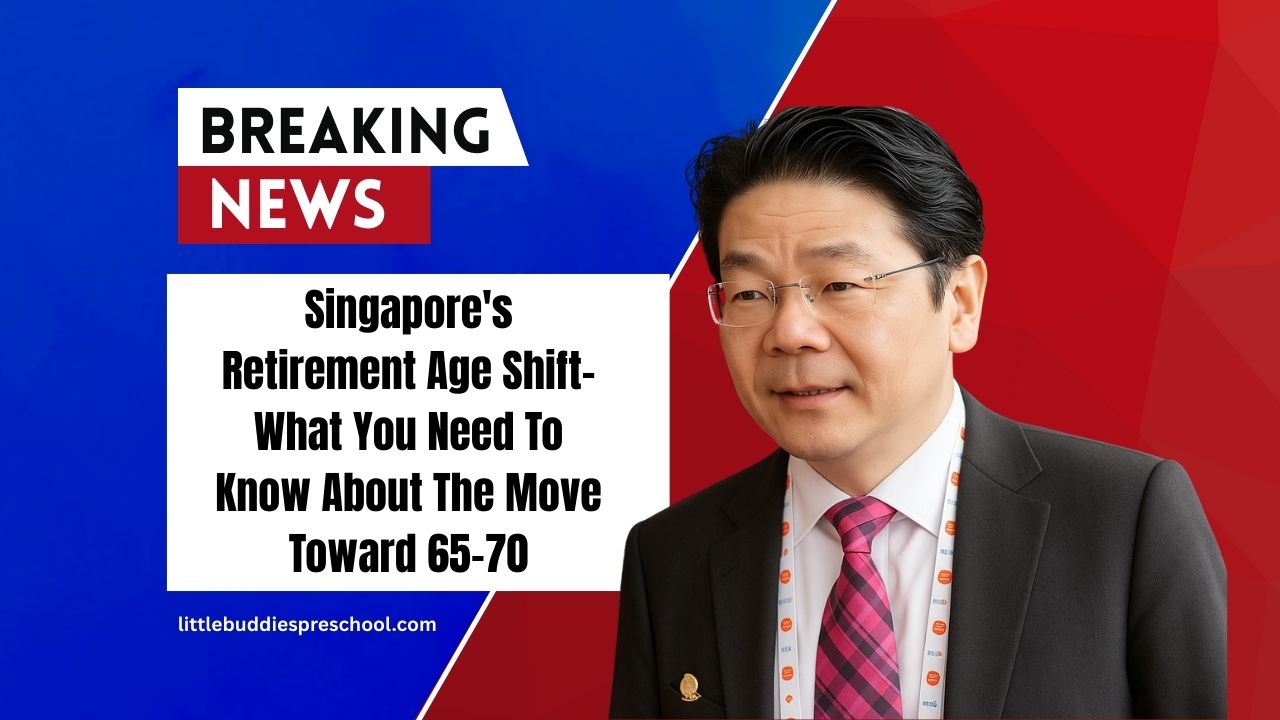Singapore is undergoing a significant transformation in its retirement framework, aiming to adapt to an aging population and evolving workforce dynamics.
The government’s plan to progressively raise the retirement age to 65 and the re-employment age to 70 by 2030 reflects a commitment to supporting older workers and ensuring sustainable employment practices.
Understanding the Retirement Age Changes
Current and Upcoming Milestones
As of July 1, 2022, the statutory retirement age in Singapore is 63, with the re-employment age at 68. These ages are set to increase in the coming years:
- July 1, 2026: Retirement age will rise to 64, and re-employment age to 69 .
- By 2030: Retirement age is expected to reach 65, and re-employment age 70 .
This gradual increase allows both employers and employees to adjust to the new norms, promoting longer workforce participation among older individuals.
Reasons Behind the Policy Shift
Several factors contribute to this policy change:
- Aging Population: Singapore’s demographic trends show a growing proportion of older citizens. As of 2024, approximately 15.2% of the population is aged 65 and above .
- Increased Life Expectancy: With a life expectancy of 83 years, many Singaporeans are capable and willing to work beyond traditional retirement ages.
- Economic Sustainability: Extending working years helps maintain a robust labor force and reduces the financial strain on social support systems.
Support Measures for Employers and Employees
To facilitate this transition, the government has introduced initiatives:
- Senior Employment Credit (SEC): Provides wage offsets of up to 7% for employers who hire senior workers aged 60 and above, earning up to S$4,000 monthly .
- Part-Time Re-employment Grant (PTRG): Offers up to S$125,000 to employers implementing flexible work arrangements and structured career planning for senior employees .
These measures aim to encourage businesses to retain and hire older workers, ensuring their skills and experience continue to contribute to the economy.
Clarifying Misconceptions: CPF Payout Eligibility Age
There has been confusion regarding the Central Provident Fund (CPF) Payout Eligibility Age (PEA). Some messages have suggested that the PEA has increased from 65 to 70. However, this is not accurate.
- The PEA remains at 65, allowing members to start receiving monthly payouts from their CPF Retirement Account at this age.
- Members have the option to defer payouts up to age 70 to receive higher monthly amounts, but this is voluntary .
It’s important to distinguish between the statutory retirement age and the CPF PEA, as they serve different purposes.
Key Retirement Age Changes
| Year | Retirement Age | Re-employment Age | Notes |
|---|---|---|---|
| 2022 | 63 | 68 | Current statutory ages |
| 2026 | 64 | 69 | Scheduled increase |
| 2030 | 65 | 70 | Targeted final increase |
Looking Ahead
Singapore’s approach to adjusting retirement and re-employment ages reflects a proactive stance in addressing demographic shifts and economic needs.
By supporting older workers through policy changes and employer incentives, the nation aims to build an inclusive and resilient workforce.
By staying informed about these changes, both employers and employees can better prepare for the evolving retirement landscape in Singapore.
FAQs
Will the CPF Payout Eligibility Age increase to 70?
No, the CPF Payout Eligibility Age remains at 65. Members can choose to start receiving payouts at this age or defer up to 70 for higher monthly amounts. The option to defer is voluntary.
How will the retirement age changes affect current employees?
The changes will be implemented gradually. Employees born on or after July 1, 1963, will be subject to the new retirement age of 64 starting July 1, 2026. By 2030, the retirement age will be 65.
What support is available for employers hiring older workers?
Employers can benefit from the Senior Employment Credit, receiving wage offsets for hiring senior workers. Additionally, the Part-Time Re-employment Grant provides financial support for implementing flexible work arrangements for older employees.

